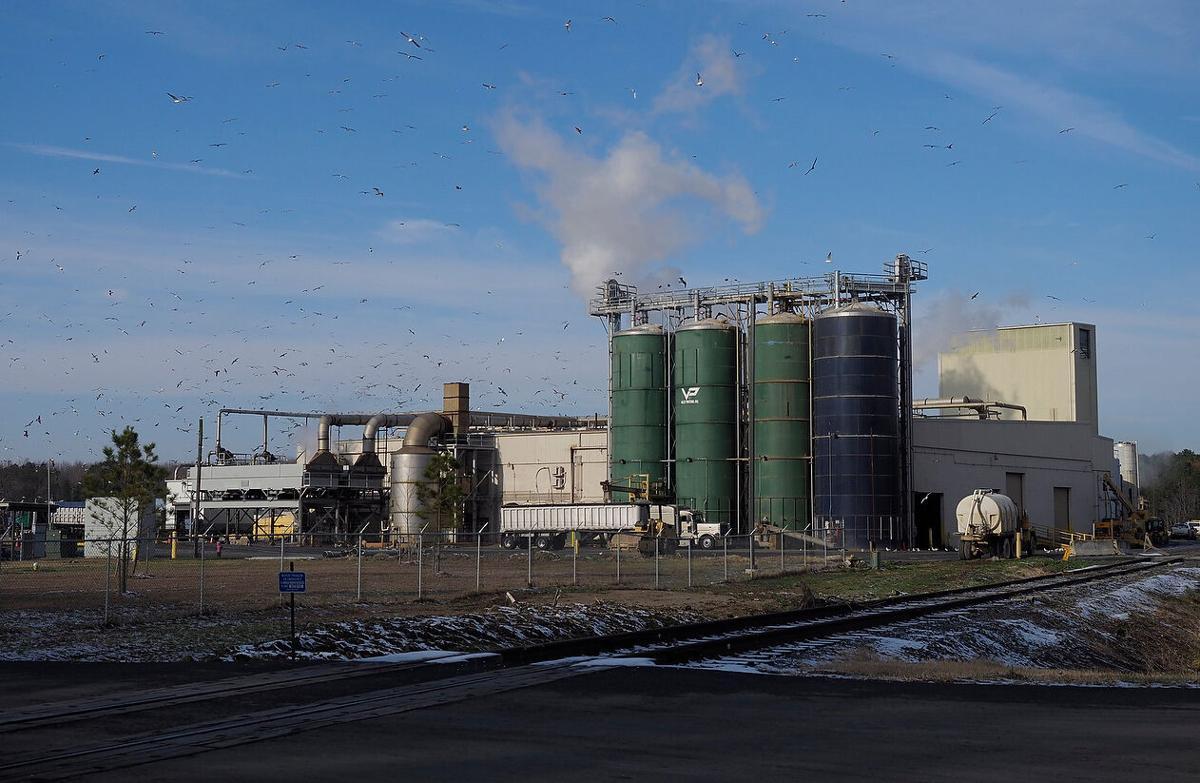On Friday, a coalition of organizations—ShoreRivers, Dorchester Citizens for Planned Growth, and Chesapeake Bay Foundation—filed a motion to intervene in a Maryland Department of the Environment (MDE) lawsuit against Valley Proteins for violating wastewater pollution limits and permit requirements.
MDE filed its lawsuit Feb. 2 to address long-term pollution issues stemming from Valley Proteins’ rendering plant, which mostly processes chicken carcasses into protein for pet food and other uses. For years residents have complained about foul smells emanating from the Linkwood, MD plant as well as poor water quality and fish kills in the Transquaking River downstream from it.
Maryland’s lawsuit alleges Valley Proteins reported 40 effluent violations over a period of about two years, as well as other types of violations. The violations were discovered following citizen complaints against the facility and drone photography shared with MDE by ShoreRivers.
“Last year at this time MDE was preparing to reward Valley Proteins for their violations and pollution discharges with an almost $14 million grant,” said Matt Pluta, Director of Riverkeeper Programs for ShoreRivers. “Valley Proteins has escaped accountability for more than a decade while operating on an expired discharge permit that it repeatedly and significantly violated, making this enforcement action long overdue. It’s our hope that by holding Valley Proteins accountable in court, the pollution from the facility will be stopped for good, and that their operations will comply with the laws designed to protect environmental and human health.”
Valley Proteins operates the plant under a National Pollutant Discharge Elimination System permit that expired in 2006 and has been administratively continued ever since. Following citizen complaints, MDE inspections in recent months revealed a litany of issues ranging from excessive pollutants being discharged into the Transquaking River to mismanagement of sludge and leaking wastewater ponds.
“For over eight years Dorchester Citizens for Planned Growth has worked to call attention to the imperiled state of the Transquaking River watershed,” said Fred Pomeroy, President of DCPG. “It has been a frustrating task because during that time the Valley Proteins facility has continued to illegally pollute the river and foul the surrounding air, with discharge violations as recent as mid-January, 2022. We support the legal actions taken by MDE and our environmental coalition. We believe this is a necessary step which will ultimately lead to a restored Transquaking.”
The motion to intervene is based on Maryland’s new law guaranteeing citizens and organizations the right to join environmental lawsuits brought by the state in Maryland courts. The law, approved in 2021, addressed a 2010 court decision that prevented citizen intervention in Maryland clean water actions. That decision in Environmental Integrity v. Mirant held that only MDE could bring civil actions against violators of Maryland clean water laws, effectively preventing state residents or organizations from pursuing claims of their own in state court. By allowing citizen intervention, the new law can help ensure that the state’s legal actions in environmental cases in state court adequately address the concerns of residents directly affected by excessive pollution.
Since 1972, affected citizens have had the right under the federal Clean Water Act to file or intervene in federal lawsuits against entities that violate pollution limits.
“We’re supporting MDE’s effort to take legal action against a longtime violator of pollution limits,” said Josh Kurtz, Maryland Executive Director for the Chesapeake Bay Foundation (CBF). “This will send a message that Maryland does not tolerate activities that foul our environment and harm quality of life. We’ll be closely watching as the lawsuit develops to ensure that a just outcome is reached for residents and the environment.”
ShoreRivers, DCPG, and CBF have previously called on MDE to enforce the requirements of Valley Proteins’ permit and hold the company accountable for past violations, but it took years for the state to act. The partner organizations are considering all options to ensure the company acts responsibly and in accordance with state and federal law.
ShoreRivers and DCPG are represented by the Chesapeake Legal Alliance and CBF is represented by in-house counsel.



Write a Letter to the Editor on this Article
We encourage readers to offer their point of view on this article by submitting the following form. Editing is sometimes necessary and is done at the discretion of the editorial staff.